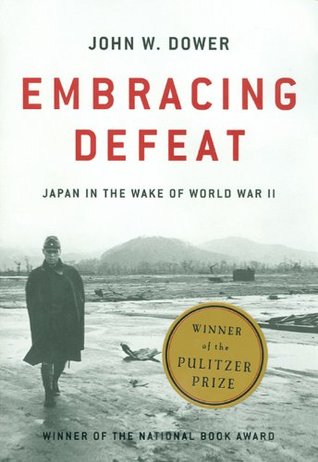More on this book
Community
Kindle Notes & Highlights
Read between
February 8 - February 15, 2020
They were, as has been said of other Americans in other situations, sentimental imperialists.
From start to finish, the United States alone determined basic policy and exercised decisive command over all aspects of the occupation.
Douglas MacArthur’s singular command over the occupation—indeed, his very title of Supreme Commander—epitomized the American monopoly on policy and power. No other Allied nation could challenge his authority.
Most obviously, of course, all of Japan was placed under American control, whereas occupied Germany had been divided into U.S., British, French, and Soviet zones.
Americans found themselves promoting their “revolution from above” in a society plagued by stagnating productivity and runaway inflation. Until 1949, while Japan’s political, bureaucratic, and corporate leaders stumbled and dragged their heels—biding their time until reparations, “economic democratization,” and the reform agenda as a whole had run their course—most Japanese were preoccupied with merely obtaining the bare essentials of daily subsistence. Simply putting food on the table became an obsessive undertaking. Hunger and scarcity defined each passing day.
Tokyo residents failed to receive a full month’s ration in six out of twelve months of 1946.
Early in 1946, for example, it was reported that the three most popular activities among small boys and girls were yamiichigokko, panpan asobi, and demo asobi—that is, holding a mock black market, playing prostitute and customer, and recreating left-wing political demonstrations.
Japan—only yesterday a menacing, masculine threat—had been transformed, almost in the blink of an eye, into a compliant, feminine body on which the white victors could impose their will.
In numerous such ways, the contradictions of the democratic revolution from above were clear for all to see: while the victors preached democracy, they ruled by fiat; while they espoused equality, they themselves constituted an inviolate privileged caste. Their reformist agenda rested on the assumption that, virtually without exception, Western culture and its values were superior to those of “the Orient.” At the same time, almost every interaction between victor and vanquished was infused with intimations of white supremacism.
In 1950, the top ten bestseller list included the translation of Norman Mailer’s novel The Naked and the Dead. Generally regarded as the finest American literary portrayal of the Pacific War, Mailer’s reconstruction of one brutal island campaign confirmed the impression of war in general as an act of senseless and unspeakable cruelty—and of the Americans as capable of their own kinds of atrocities.


